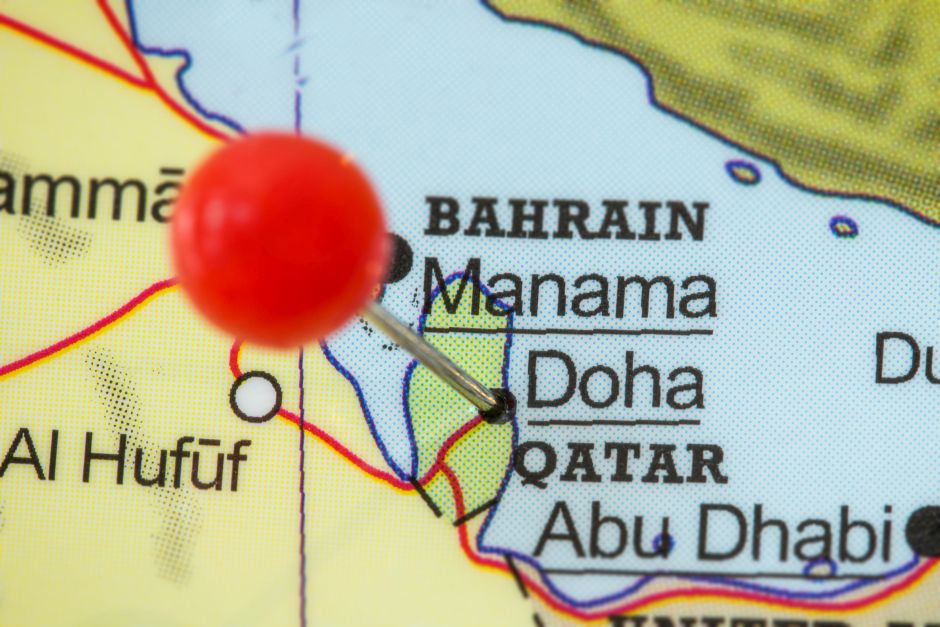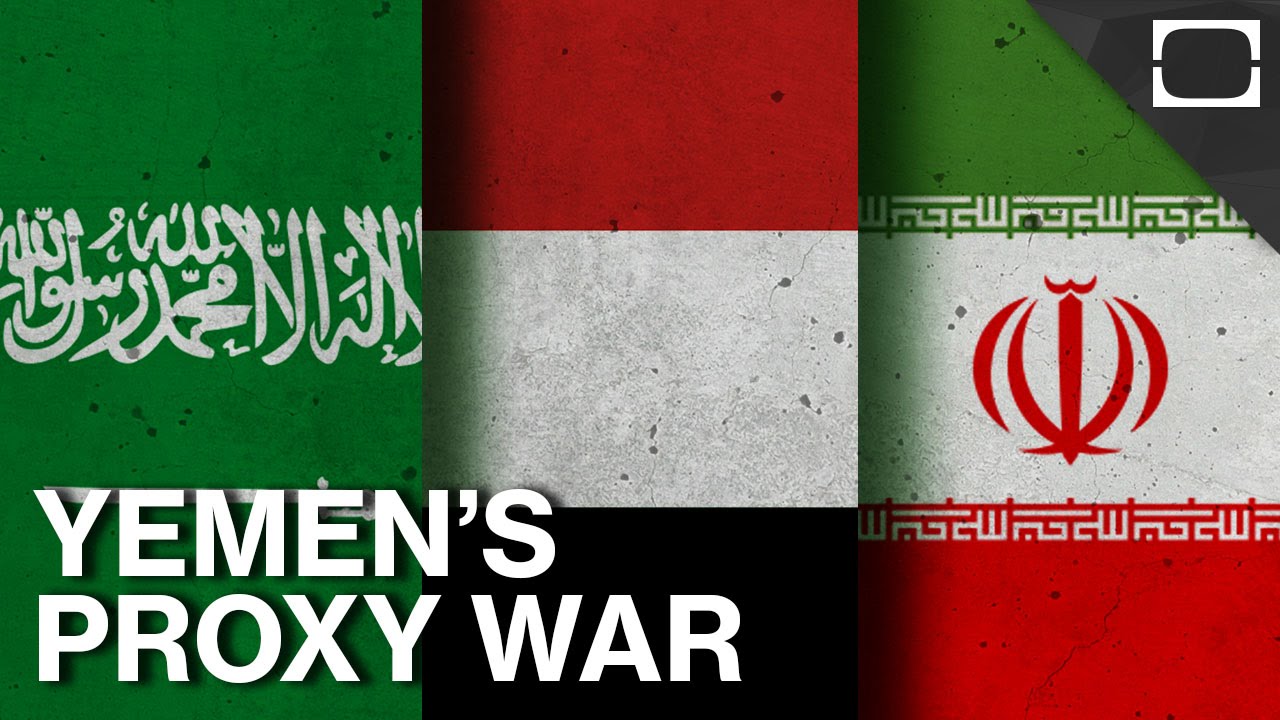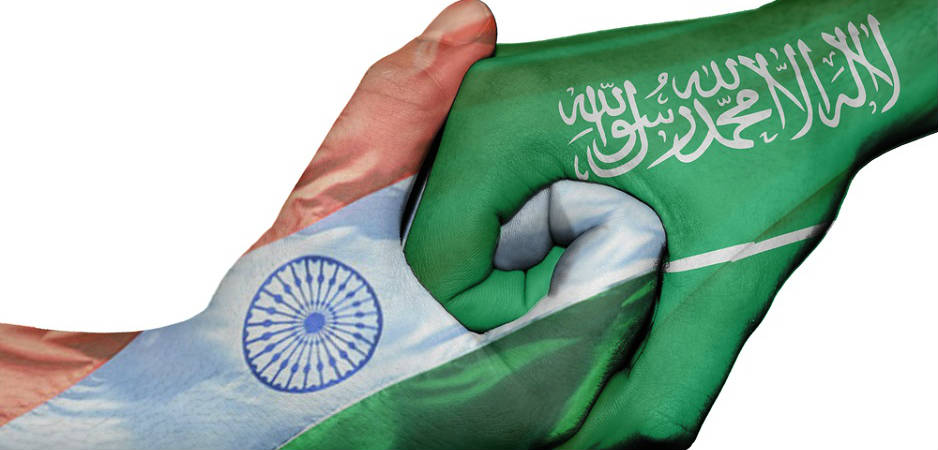The recent dispute between Qatar and some of its neighbors is the most serious dispute among them in years, and has the potential to further destabilize an already turbulent region. But the crisis also presents a potential opportunity. If a united front that includes the United States and the leading countries in the Arab world can induce Qatar to contain its support for organizations that promote extremism and threaten regional order, it could help stabilize the region, limit the reach of the Islamic State, and isolate Iran. The United States, which maintains close relations with both sides, should play an active role in trying to bring its quarreling partners together.
The recent dispute between Qatar and some of its neighbors (Saudi Arabia, Egypt, the UAE, and Bahrain) is the most serious dispute among them in years and has the potential to further destabilize an already turbulent region. The ostensible triggers of the crisis were inflammatory remarks allegedly made by the Emir of Qatar and a reported ransom payment by Doha to Iran-backed extremist groups, but the real issues are profound differences between Qatar and the others about how to deal with Iran, political Islam, and issues of regional leadership. With Saudi Arabia and some of its allies in the Gulf Cooperation Council (GCC) closing land and sea routes to Qatar, canceling flights, withdrawing diplomats, expelling Qatari nationals, designating 59 Qatari citizens as terrorist supporters, prohibiting the screening of the al-Jazeera TV network, and even (in the case of the UAE) banning the expression of sympathy toward Qatar, the disagreement is significantly more serious than previous clashes, including in 2014, when Saudi Arabia and other countries recalled their ambassadors from Doha.
This dispute among Sunni-majority Arab states is a major cause of concern because it reflects a deep fissure among United States allies in the effort to maintain regional stability by combating the Islamic State and containing Iran. If Saudi Arabia and its allies overplay their hand, they could drive Qatar to openly align itself with Iran and Turkey, further exacerbating tensions in the region, creating an enduring diplomatic and economic stalemate, and jeopardizing the use of the al-Udeid military base in Qatar by the United States and the counter-ISIS coalition. In worst case scenarios, the dispute could even lead to a military conflict in the Gulf.
But the crisis also presents a potential opportunity. If a united front that includes the United States and the leading countries in the Arab world can induce Qatar to contain its support for organizations that promote extremism and threaten regional order, it could help stabilize the region, limit the reach of the Islamic State, and isolate Iran. Qatar could “save face” and maintain its open channels to some Islamist groups and its relatively neutral stance on Iran, but it would respect its partners’ redlines about funding and supporting groups that threaten their core interests. The United States, which maintains close relations with both sides, should play an active role in trying to bring its quarreling partners together.
Causes of the Conflict
The primary long term cause of the crisis between the Saudi-led camp and the government of Qatar is Doha’s funding of and political support for politically active and sometimes violent Islamist groups, often affiliated with the Muslim Brotherhood. Qatar’s GCC allies feel threatened by the potential influx of secretive organizations, extreme religious attitudes, and political activism; in terms of the threat these groups pose, the Saudi-led camp believes there is little difference between the Brotherhood and the more overtly violent extremist groups they face. Despite Saudi, Egyptian, and Emirati objections and the fact that it is the politically and militarily weaker party, Qatar has continued to support its Islamist allies, and for several reasons: genuine ideological affinity; a sense, at least until recently, that political Islam was an ascendant force in the region; a drive to boost its global influence by being able to engage with these groups on behalf of the international community; and a desire to challenge the status quo, including the rule of traditional Saudi allies. Qatar’s independent foreign policy and willingness to challenge Saudi leadership has consistently weakened the notion of a “Sunni Arab camp.” In addition, Qatar’s use of the government-owned media outlet al-Jazeera to magnify the Muslim Brotherhood’s influence throughout the Arab world and criticize leaders in Riyadh, Cairo, and Abu Dhabi has long been a serious thorn in regional relations. Already in 2002, Qatar’s hostile media coverage of the Saudi government led Riyadh to recall its ambassador from Doha for six years. Saudi Arabia did so once again in 2014, along with the UAE and Bahrain, in response to criticism by Qatar-based and Muslim Brotherhood-affiliated Sheikh Yusuf al-Qaradawi of the Egyptian and Emirati governments.
A second source of tension is Doha’s accommodating stance toward Iran, which is seen by most of the other Sunni-majority states in the Gulf as a growing threat to their security or even existence. Over the last decade, the Qataris have taken steps such as voting against a UNSC resolution calling on Iran to halt its nuclear enrichment program and signing a bilateral counterterrorism agreement with Iran; this more conciliatory approach is likely the result of both Qatar’s relative military weakness compared to Iran as well as its economic interest in maintaining cooperation with the country with which it shares the world’s largest gas field. More recently, the Emir of Qatar congratulated Iranian President Hassan Rouhani on his reelection (the only Gulf country other than Oman to do so), and according to the Financial Times, the government of Qatar irritated many of its Gulf allies in April 2017 by authorizing the payment of $700 million to Iran and Kata’ib al-Hezbollah, the Iranian-backed Shia militia in Iraq, in exchange for the freedom of members of Qatar’s royal family taken captive in Iraq. In late May 2017, the Emir was reported (probably falsely) by the Qatar State News Agency to have criticized the hostile rhetoric of the Gulf and the US toward Iran, leading to severe criticism throughout the rest of the Gulf and triggering the current crisis.
Third, the Arab Spring – which put the leadership and orientation of a number of regional states “up for grabs” – stoked the regional competition among most of the Sunni monarchies, Iran, and the Islamists. In some cases, such as Syria, Iran was the main beneficiary. Rather than consolidating efforts among those opposed to both the Assad regime and ISIS and creating a cohesive moderate opposition force, the competition between Saudi Arabia and Qatar drove them to support different and often competing groups in Syria. For example, in the area surrounding Damascus, Riyadh funneled money and weapons to Jaysh al-Islam while Qatar supported its rival Faylaq al-Rahman. This disjointed effort served the interest of the Iran-backed Assad regime, which was only too happy to see rebel groups waste blood and treasure on each other rather than on the regime, while at the same time providing further evidence for the claim that there was no unified opposition. In other cases, where Iran’s influence was minimal, the struggle between Doha and Riyadh resulted in greater instability and violence. For example, in Egypt, the Saudis supported the traditional military-political establishment while the Qataris supported the Muslim Brotherhood and its political organ, the Freedom and Justice Party. The rivalry between the Gulf States added fuel to the fire of an already bitter local struggle for power and the result has debilitated Egypt, the one-time leader of the Arab world. In Libya, the Saudis and Emiratis have supported secular military leaders like General Khalifa Hiftar, while the Qataris (and Turkey) backed Islamist groups based in Mistrata, thereby fueling the Libyan civil war and creating an environment conducive to the growth of the Islamic State. This has had deadly consequences for Libya’s neighbors, Tunisia, and Egypt, as well as repercussions hundreds of miles away in Europe.
Fourth, President Trump’s visit to Saudi Arabia, his first foreign visit to any country, was read in Riyadh, Abu Dhabi, and Cairo as a green light for them to punish Qatar for its support of Islamist groups. Trump expressed an unqualified commitment to Riyadh and its allies in the region, with a focus on containing Iran and fighting against radical Islam, signaling there would be no fallout from the United States if they took steps to push Qatar back into line. Trump even took credit on Twitter for bringing about the regional blockade of Qatar, and denounced Doha’s leaders as “high-level funders of terrorism,” though his own Secretary of State had appealed for an easing of that blockade.In this sense, the Saudi-led move was at once an opportunity for the GCC partners and Egypt to punish their adversaries in Doha, please their allies in Washington, and remove attention from their own shortcomings and challenges.
Scenarios and Recommendations
The diplomatic crisis – involving a number of unpredictable actors with major interests at stake – could play out in a number of different ways. The Saudis and their allies clearly hope for a rapid solution in which Qatar recognizes how serious they are, respects a balance of power in which it is the weaker party, and concedes quickly and unambiguously to their list of demands. These demands include reining in or shutting down al-Jazeera, limiting cooperation with Iran to issues related to the shared gas field, expelling the leadership of the Muslim Brotherhood and Hamas, and making iron-clad commitments not to support extremist groups.
However, quick and complete Qatari concessions are highly unlikely. Economically, Qatar’s sovereign wealth fund of over $300 billion (for a population that numbers around 300,000 citizens) ensures that the country will not feel serious financial pain in the near future. Also, because all of the GCC economies are so similar in nature (reliant on energy exports), the economic activity between Qatar and the other petro-states in the region is not as significant as one might expect among neighbors. In fact, only the UAE constitutes one of Qatar’s top-5 trading partners. In addition, Doha knows that the US has an interest in ensuring its security so long as the al-Udeid air base is a critical component of its campaigns in the region, including Afghanistan, Iraq, Syria, and Yemen; this was evident in the recent US comments directed at Qatar, which praised it for its “enduring commitment to regional security.” The US does not have obvious alternatives to al-Udeid, and US military leaders, in the middle of a major military campaign against the Islamic State, will do all they can to maintain it. Finally, Qatar’s proud leaders are deeply averse to concessions, and have vowed not to “surrender” to terms that they see as legitimizing Riyadh’s presumed “guardianship” over Doha that compromises the independence of its foreign policy.
At the same time, the opposite scenario, whereby the Saudis, Emiratis, and Egyptians abandon their demands, seems equally unlikely. While it can be debated how much of this crisis is a competition for leadership of the GCC as opposed to genuine security issues , no one should question how strongly the Gulf allies’ leaders feel about both Iran and radical Islamism – and how threatened they feel by Qatar’s approach to both. Having staked out such a high profile position insisting that Doha change its ways, Riyadh, Abu Dhabi, and Cairo are unlikely to retreat from that position without something to show for it. And while an ongoing standoff will have some effect on their economies, this will be marginal, meaning they can likely maintain their sanctions for a long time. Like the Saudi military campaign in Yemen, now entering its third year, an initial failure to achieve its strategic goals will not necessarily mean abandoning the objective, and the Yemen conflict is far more costly to Riyadh than any standoff with Qatar is likely to be.
The positions of both sides thus suggest the Gulf dispute could easily continue for some time, which should be of concern to everyone interested in the stability of the region. One possible result of a long term standoff, beyond the mutual economic consequences, is a more permanent split of the Sunni camp, in which Turkey and Qatar, the Muslim Brotherhood’s major backers, move closer together and, along with their Islamist clients, gravitate away from traditional allies and closer to Iran. Ankara and Tehran have been forthcoming with food supplies in order to minimize the inconvenience of the embargo on Doha, and Turkey is considering enhancing its limited military presence in Qatar as a demonstration of solidarity and deterrent. The impact of a Qatari alignment with Iran and Turkey could have far reaching negative implications for the civil wars in Syria and Libya, Iranian influence in the Arab world, US relations with Qatar, US military operations in the region, Qatar’s food security, the World Cup in 2022, the price of oil, and the overall security of the Middle East. The deterioration of US security architecture in the region, its ability to operate in the region, and the growing divide in the Sunni camp would – ironically, given the objectives of the initial actions – only empower and perhaps even unify Iran and the Islamist camp.
An even more troubling possible outcome of an ongoing standoff is that Qatar’s resistance to the demands of its neighbors and its possible rapprochement with Turkey and Iran leads to diplomatic, economic, or even military escalation. Saudi Arabia (and the UAE) have their hands full in Yemen and would be reluctant to take on another regional conflict, but such a development cannot be excluded if they feel Qatar’s actions genuinely endanger their vital security interests. Just as Saudi Arabia felt it had no choice but to take the risky step of launching a campaign in Yemen in 2015, if the current Qatari leadership continues to act in ways that Riyadh finds threatening, it might consider a military action to replace it.
Because the perpetuation of this dispute could be so damaging, outside actors with a stake in regional stability have a major interest in helping resolve it. The United States in particular, given its close relations with (and leverage on) both sides, is in a unique position to do so. Indeed, the Gulf tensions underscore why the United States, whatever its frustrations with the Middle East and challenges at home, cannot afford to simply pull out of the region. It needs to use its still-unparalleled power to back its allies’ core interests while ensuring they do not overreach in counterproductive ways.
A negotiated solution would not require Qatar to fold completely, cut off all ties to Islamist groups and Iran, and allow Riyadh to dictate its foreign policy – which in any case is an unlikely outcome. The United States might well thus remind its friends in Riyadh, Abu Dhabi, and Cairo that if they push too hard to achieve all their demands, the result could be an outright realignment of Qatar with Turkey and Iran, which is contrary not only to American interests but to those of its closest Arab partners. To underscore this message, Washington can emphasize that President Trump’s promise to restore traditional alliances did not constitute a “blank check” to punish Qatar, as Secretary Tillerson appears to have implied in his statement calling for deescalation. After the Riyadh summit (and the US alignment with Saudi positions on Iran, Islamist extremism, democracy, human rights, and business relations), the Trump administration should have significant political capital with Saudi Arabia and its Gulf allies, and can use it to persuade them to provide Doha with a realistic path to compromise consistent with their interests.
At the same time, the US should clarify that Doha will have to change its policies if it wants to get out of the box it is now in, and that Qatar’s potential realignment into the orbit of an isolated and bellicose Iran or a crisis-stricken Turkey would harm its relations with the United States. The US should apply calibrated political pressure on the government of Qatar to end its most harmful activities and ensure Doha’s commitment to end incitement by al-Jazeera and elsewhere against the Saudi, Emirati, and Egyptian leaderships; verifiably demonstrate its commitment not to fund groups that sponsor terrorism and refuse to host the leaders of groups that do; and refrain from taking actions that directly threaten the stability of the government in Cairo, including the provision of political, financial or other forms of support for the Egyptian Muslim Brotherhood.
Balancing its support for key Gulf allies and their core interests with the need to avoid encouraging them to launch risky diplomatic offensives that can backfire dangerously will not be easy for an administration that has yet to demonstrate a capacity for nuanced diplomacy. But that is precisely what is required to resolve the current crisis in the Gulf. The necessary message to Qatar that it must curb its support for groups that threaten the security of its most important partners has been sent loud and clear. Doha should heed that message and demonstrate to its neighbors that it respects their interests and can avoid undermining them without giving up its own right to an independent foreign policy that need not include an aggressive stance toward Iran or an end to its dialogue with Islamist groups. Since the regional parties to this dispute will not likely find a workable compromise position on their own, the United States should make it a priority to help them do so – before the costs of the dispute continue to mount – or escalate in unpredictable ways.
This article was written by Philip Gordon, Amos Yadlin, Ari Heistein
Special Publication, June 13, 2017
Original link of the article : http://www.inss.org.il/publication/qatar-crisis-causes-implications-risks-need-compromise/







